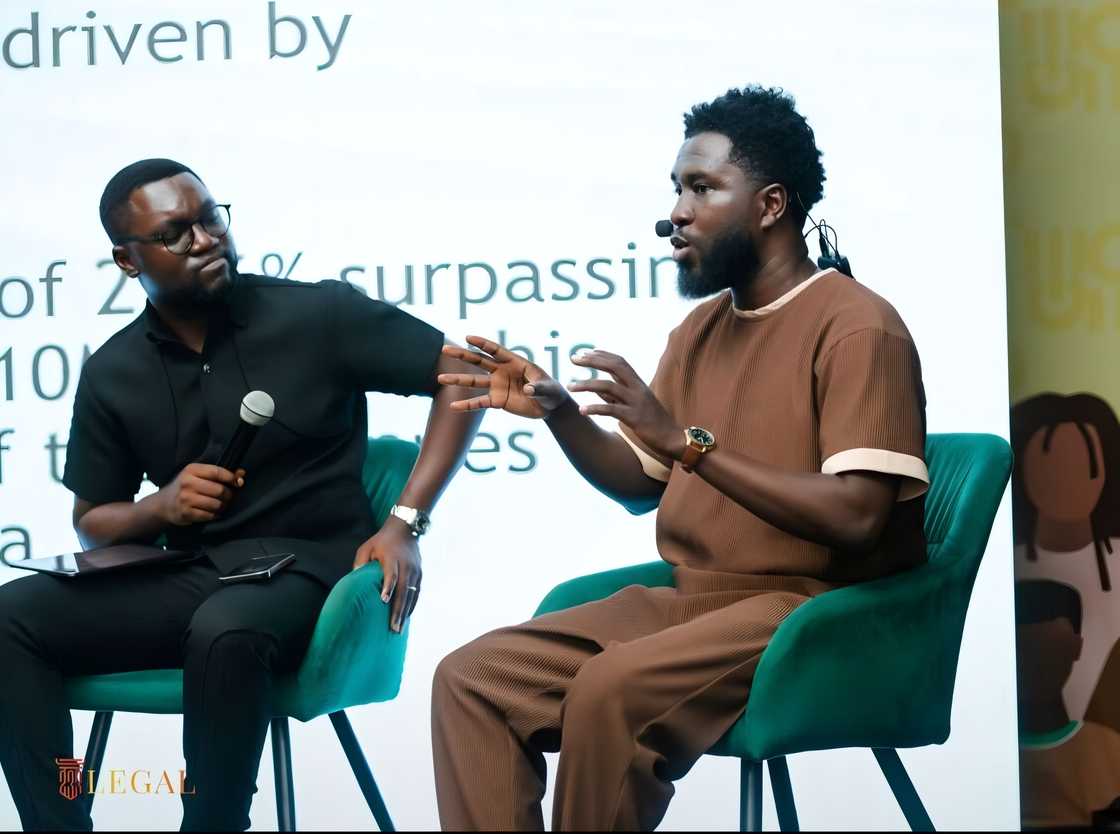Why Ghanaian Artists Sell Their Music Catalogues to Foreign Companies: Expert Explains
- Several top Ghanaian musicians, including Shatta Wale, Sarkodie, Ebony Reigns, Amerado, and Captain Planet, have sold their music catalogues to foreign companies like Waka Music Limited
- Rights Manager Nana Gee says weak royalty collection systems, inconsistent income, and lack of transparency at GHAMRO are major factors pushing artists to sell
- While catalogue sales give artists immediate financial security, experts warn that it strips them of future income, creative control, and their musical legacy
Ghana’s top stories, now easier to find. Discover our new search feature!
A growing trend has emerged among Ghanaian musicians, with some of them selling their music catalogues to foreign-based companies, most notably Waka Music Limited.

Source: Instagram
This development has left fans puzzled, especially since some of the artists involved were the least expected to give up ownership of their works.
The move has sparked questions about why these musicians would hand over such a valuable part of their creativity to external companies.
Once a catalogue is sold, the artist loses ownership rights, and all streaming revenue goes directly to the acquiring company.
In exchange, the artist receives a one-time payment based on the agreed price.
Industry observers point to several reasons for this trend.
For years, Ghanaian artists have struggled with low earnings from streaming platforms, weak royalty collection systems, and rampant piracy that undermines music sales.
Many also lack access to professional legal and financial guidance, leading them to undervalue their catalogues.
Selling to foreign firms becomes an attractive option because it provides instant financial security, albeit at the expense of perpetual revenue.
This trend of catalogue sales has divided opinions.
Supporters argue that it gives artists immediate cash flow to invest in their lives and careers, while critics warn that it strips musicians of their legacy and potential future earnings.
As global companies continue to see the value in acquiring African music catalogues, the debate over ownership and sustainability in Ghana’s music industry is likely to intensify.
Some of the popular names who have sold their catalogues include Shatta Wale, Sarkodie, the late Ebony Reigns, Amerado, Captain Planet, and others.
Rights manager explains reasons behind catalogue sales
YEN.com.gh spoke to a catalogue administrator and rights manager, Nana Gee, who specialises in metadata optimisation and royalty collection, to provide more insights into this trend.
With his expertise in the industry, he offered a detailed analysis to clarify the situation and address misconceptions on social media.

Source: Twitter
When asked what motivates Ghanaian artists to sell their catalogues to foreign companies instead of keeping ownership, Nana Gee explained:
“Ghana’s royalty collection structures (through GHAMRO) are often criticised as inefficient, with poor transparency and late or minimal payouts. Artists would rather sell their catalogue than depend on GHAMRO for performance royalty collection. Many artists face inconsistent income streams. A catalogue sale gives them a significant one-time payout, which can outweigh the slow trickle of royalties.”

Read also
Adjetey Anang says the Ghanaian movie industry has talented actors and unique content to thrive
On how much financial security artists realistically gain from selling their catalogues compared to keeping them long term, he added:
“Music income depends on streaming trends, licensing deals, and fan loyalty. A sale eliminates the risk of declining future revenues. Artists can use proceeds to invest, diversify, pay debts, or fund projects without waiting on slow trickles of royalties. Older artists often sell to avoid complex inheritance issues and to secure wealth for their families.”
Over the years, artists have complained that the royalties paid to them are too little, and some have not received any at all. This has been a problem for both veteran and young musicians.
YEN.com.gh, therefore, asked whether Ghana’s weak royalty collection system plays a major role in pushing artists to sell their rights.
Nana Gee responded:
“Yes, it does. Ghana lacks strong data-tracking systems for radio, TV, live venues, and even digital platforms compared to Western markets. Without accurate usage tracking, artists can’t maximise their earnings from owning rights, hence selling their catalogue for an upfront lump sum.”

Read also
Juliet Ibrahim speaks on royalties and Africa’s Entertainment growth in a roundtable discussion
Many are also curious about the risks and drawbacks of selling catalogues, and why some people frown upon it. On this, Nana Gee said:
“The major risk of losing ownership of the catalogue is the loss of future income and creative control. Music catalogues can generate steady income from streaming, licensing (film, TV, ads, games), publishing, and performance rights. By selling, artists cut themselves off from these recurring revenues. The artist’s estate may also have little or no say in how the catalogue is managed after their death.”
On how the Ghanaian music industry can be structured better so that artists do not feel pressured to sell their catalogues abroad, Nana Gee advised:
“The Government of Ghana must enforce copyright laws, requiring broadcasters, event centres, and digital platforms to pay licensing fees reliably. There should be a strong legal backing to fix the Collection Management Organisations (GHAMRO) to ensure transparency, digitisation, and proper reporting. At the moment, artists often see almost no returns from public performance or broadcasting royalties.”
He continued:
“If Ghana builds transparent royalty systems, creates financing options around intellectual property, enforces copyright, and boosts local monetisation, artists will feel less financial pressure to sell their catalogues abroad.”
Shatta Wale clashes with MOG over IP
Previously, YEN.com.gh reported that Producer MOG Beatz accused Shatta Wale of stealing his intellectual property to secure a multi-million dollar deal with an international company, leading to two of Shatta’s albums being removed from Apple Music.
Shatta Wale denied the allegations, calling MOG Beatz a liar and ungrateful. He said he had helped the producer in the past by paying for his mother’s medical bills and buying studio equipment as compensation for his productions.
MOG Beatz dismissed Shatta’s claims as false and warned that more of his music could be taken down.
Proofreading by Samuel Gitonga, copy editor at YEN.com.gh.
Source: YEN.com.gh




